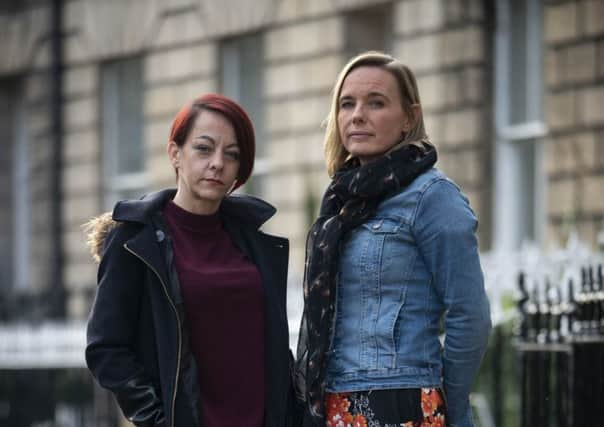Rape victims launch bid to overhaul law which '˜failed' them


Each of the five women was denied the chance of having their alleged abuser taken to court due to the legal requirement for corroboration.
The Scottish Government had planned to abolish corroboration – the centuries-old legal principle which requires two independent pieces of evidence for a case to come to court – before a re-think in 2015.
Advertisement
Hide AdAdvertisement
Hide AdThe group of survivors is calling on the government to look again at the issue and is considering mounting a legal challenge using human rights legislation.
In a joint statement provided to The Scotsman, the women, some of whom wish to remain anonymous, said Scotland had a “shameful” record of prosecuting sexual crime.
They said: “We believe that this outdated law has no place in a modern justice system, and we hope that by standing together and speaking out we might raise awareness of the impact this law has on the victims of crime.
“Many people imagine that the term ‘corroboration’ can be taken at face value, that as long as evidence exists to corroborate an allegation of a criminal act then the police can use that evidence as the basis for a prosecution.
“Unfortunately for us, and for countless others in the same position, when the crime takes place in Scotland that is not the case because the legal definition of corroboration only allows for specific types of evidence to be considered.”
The women said that after having done “everything possible” to bring their own abusers to justice, they now hoped to “challenge a system that is manifestly failing to give victims access to justice”.
The group includes Shirley Ross, 40, who agreed to waive her anonymity to speak about the sexual abuse she was subjected to by a family friend between the ages of four and 18. “The police told me they believed me but because of the corroboration law and because I never told anyone at the time – as you are groomed and trained to do – there was nothing they could do,” she said.
“The last 12 years since I reported it to the police have probably damaged me as much as the abuse itself because I was left feeling like nobody cared, that what he did to me didn’t matter.”
Advertisement
Hide AdAdvertisement
Hide AdThe group also includes Emma Bryson, 46, who used an article in The Scotsman this year to describe the “overwhelming sense of injustice” she felt after corroboration rules prevented the man who allegedly raped her in childhood to escape prosecution.
The Scottish Government backed away from scrapping corroboration in 2015 to allow time for the consideration of a report by Lord Bonomy which looked at legal safeguards.
Sandy Brindley, of Rape Crisis Scotland, said: “The requirement for corroboration has a disproportionate impact on sexual crime, which often takes place in private.
“It can take a great deal of courage to report abuse to the police, and it can be devastating to be told that your case cannot proceed due to lack of corroboration.
“We believe that is time for the Scottish Government to look again at whether the requirement for corroboration should go.”
A Scottish Government spokesman said: “Any potential reform of the corroboration requirement needs to take account of research we’ve commissioned into jury reasoning and decision-making which we expect to be complete by autumn 2019, a specific recommendation of Lord Bonomy’s review.
“Since the review reported, we have taken forward a wide range of measures to improve how the justice system deals with allegations of sexual offending and to improve support for victims.”